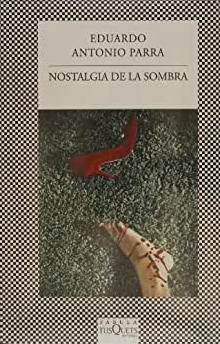Frank Wilderson III’s Afropessimism offers a study of the meta-aporias that Black exposes to that thing we call Human. If an aporia is an impossibility, a meta-aporia is an impossibility about impossibility. For Wilderson, Black people “are both barred from the denouement of social and historical redemption and needed if redemption is to attain any form of coherence” (12). A wrench, a tool, that is also a sentient being, Black is that which presupposes and exceeds all claim to Humanity and social justice, all project of insurgence and revolution, and even all gender revindication. This precisely why “Black people embody (which is different from saying are always willing or allowed to express) a meta-aporia for political thought and action” (13). Hence, afropessimism “argues, Blacks are not Human subjects, but are instead structurally inert props, implements for the excecution of White and non-Black fantasies and sadomasochistic pleasures” (15). There is then, no possibility of understanding what Black is in terms of the Human. There is no analogy which can compare what the Black and the Human feel, want, do, or live. There is then, no other attitude than a radical pessimism when it comes to discussing race and by extension all that Human vainly proclaims as universal.
Divided in 2 parts and an epilogue the book retells some passages that Wilderson himself lived. In between non-fiction but also theory, the book exposes to what extent every-day life of any Black person is positioned as the ultimate point of exhaustion but also redemption of all that is White and non-Black. That is, from daily habits as kids playing in an abandoned house, or university conferences, the Black sentient being is the one who both guarantees the ground zero of suffering and by the same token the possibility for reassembling all form of order and organization. Slavery, then, is not something dead and gone, but a paradigm impossible to split from Blackness. Black experience social death, “the knowledge and experience of day-to-day events in which the world tells you you are needed, needed as the destination for its aggressivity and renewal” (41). To put it in other words, the Latinx worker who suffers exploitation and discrimination in the United States, let’s say, comforts themselves at the end of a long day of work because after all, they are not Black. This comfort is precisely what allows the worker to return to work the day after and also what places Black as the infinite act played in a theatre of cruelty that uses and abuses of Black but does not include it as part of the characters of the play.
The radical lesson of afropessimism is that “there was never a prior meta-moment of plenitude, never equilibrium: never a moment of social life” for Blackness, and by addition for the Human. To that extent, afropessimism shows that there is no hegemony nor civil society, or if they exist, they only do as sadomasochistic fictions rituals that guarantee White and non-Black existence as Humas. Since Blackness cannot be separated from Slavery, then, there is no possibility of understanding a Black time nor space. Even violence refuses to give explanations of what Blackness entails. Since the Black is the one that who embodies “a regime of violence that bore no resemblance to the regimes of violence that subjugated /subjugates the others [the Humans]” (216), violence is always connected to Slave violence, an open-ended relationship. Then, the Slave suffered, the Black suffers, the Black suffered, the Slave suffers. White violence can be causal, provoked, but the violence that the Black suffers is “gratuitous, without reason or constraint; triggered by prelogical catalysts that are unmoored from her transgressions and unaccountable to historical shifts” (216-217). There is, then, only the chance to refuse politics, to refuse to affirm the Human, and rather to embrace disorder and all the possibilities that civil war could open, as this precisely “becomes the unthought, but never forgotten, understudy of hegemony” (251). In the struggle of all against all Humanity crumbles, something else breaths and feels.




